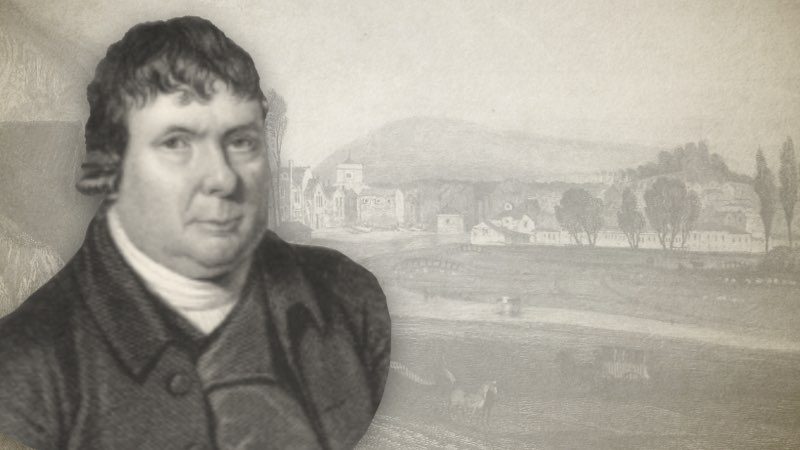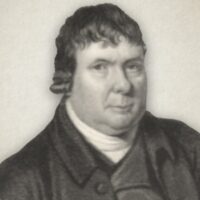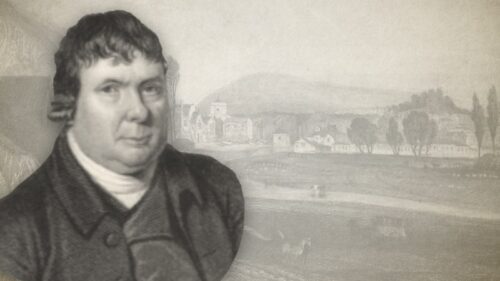
The Child of Liberty in Legal Bondage: Preface
The Child of Liberty in Legal Bondage
or,
The Son and Heir in the Servant’s Yoke.
“Thou hast chastised me, and I was chastised, as a bullock unaccustomed to the yoke.” Jeremiah 31:18
TO MR. HUNTINGTON. London, Sept, 10, 1794. Rev. and dear Sir,
As I understand you are frequently troubled, and put to unnecessary expense, with impertinent and unedifying letters, I humbly beg excuse for troubling you again at this time, hoping you will not have reason at least to complain of the impertinence of this letter, how much soever of its ignorance; and not at all of its expense. I had the happiness last night, as in the good providence of God I have often had before, to hear you at Monkwell Street Chapel, on the text “Stand fast in the liberty wherewith Christ hath made us free,” &c., with much satisfaction, and, I hope by the blessing of God, with some edification. I think, if, after such a sermon, and the doctrines contained in and enforced by it, your adversaries continue to insist upon the danger of your doctrines, and the error of your judgment as a minister of the gospel, they must form an hypothesis by malice and prejudice, and use the arguments from falsehood and slander. There is no doubt but that, if a man be made an offender for a word, or his own natural mode of expression, who among men (who are all, at the best, but imperfect,) who among them shall escape judgment and condemnation? Only, however, as it is happy for them, by their own brethren, fallible as themselves, and accountable to the judgment, and liable to the condemnation, without repentance, of him who is only impartial and just. According to my weak judgment, you fully settled the dispute with your adversaries respecting Antinomianism, and removed the smallest doubt (to any one) of the orthodoxy of your principles respecting the believer’s freedom from the law as a covenant of works, and of subjection to it as a rule of obedience for life, or as a rule of obedience at all, only as a transcript of the moral perfections of God, and perfect standard of righteousness; which is wrought out by Jesus Christ for all whom the Father has given him, and applied to them through the faith of the operation of his Spirit, which works by love; and, as it is perfect and pure, and abounds to God and man, is a fulfilling of the law. Your correspondent, whom you mentioned last night, appears to me to be just such a man in principle as your adversaries mistake you for. According to what you mentioned of him, as appears to me, he is an Antinomian in the proper sense of the word. When he is once freed from the sensible bondage of the law, he seems to flatter himself he has nothing to fear from its power (as to bondage) for ever again. But I am afraid he soon will, as usual, if we rightly know ourselves, the law, and its author, and at the same time examine our own dispositions and practice for one week, much more a month or a year, that we shall be condemned by ourselves, and shut up; that we can obtain no relief, but by the same power that loosed the bonds of our spiritual death, But, I need not, Sir, mention these things to you, neither do I on any other account but to express my own mind to you as a friend, not as attempting in any respect to instruct one at whose feet I am happy to learn. I could not help last night observing the wisdom and truth of God in making all things work for good to them that love him, when I had the happiness to hear such a sermon, occasioned (as I suppose) chiefly by the incident of your correspondent’s letter; and is to me a further proof of the utility of argument, and even in some degree of controversy, in the discovery and defence of the truth. I humbly think, Sir, after preparing such a sermon, and not only so, but in immediate answer to such objections, and in defence of such doctrines; which I believe you yourself are supposed by many to condemn; it would be both doing injustice to yourself, and withholding from the public a valuable means of instruction, if you do not publish it. About six weeks ago, when you preached at Monkwell-street, the sermon on the abolition of the authority of the law over believers in Christ, I was (I must confess) so much taken with it, that I would have almost given any thing, for a copy of it; but did not think it was possible you could have time, and take the trouble, to write out at length such a copious discourse before delivery; and, even if you had attempted it afterwards, you could not have come any thing at all near the sentiments, not to say precise words; but, when (to my great satisfaction) I found it published almost word for word as it was delivered from the pulpit, I must say I was much surprised, and could not help admiring both the natural and gracious qualifications of the author. By the publication of that sermon I believe, Sir, you have at once defended your own cause and that of truth; while you have favoured the public at large, and those who heard it in particular, with an instructive and edifying discourse on the subject. I, among others, was minded to solicit the publication of it, and would actually have taken the liberty, if it had not been for the reasons above mentioned-that I did not think you could either have written it before, or could remember it with any degree of precision afterwards. However, I do not think the one preached last night any thing inferior to it; and on this account, Sir, I would earnestly beg of you that, as you regard the vindication of your character, and your success as a minister of the gospel of Christ in the conversion of sinners, and the edification of saints, either immediately in your own connexion, or more at large, you will favour them with the publication of it.
I am, Sir,
Your’s with due esteem, N F-H.
TO MR. HUNTINGTON, Sir,
I desire to return my sincere thanks to Almighty God for hearing, and answering my request, in sending you forth this morning to describe the very feelings of my poor soul; for I did not know it was got under bondage to the law; I thought I was an hypocrite, and I desired the Lord to send you to shew me if I was; and, if not, that you might bring forth some Saint that had been in my state; which the Lord has condescended to do. The Lord grant me a grateful heart for his great mercies. Dear Sir, pray for me, that the Lord may bring my soul out of this prison, that I may praise his holy name; and may the Lord give you a double portion of his Spirit.
From your sincere daughter E. T.
Sept 14. 1794.
PREFACE.
Courteous Reader,
THERE are but few of God’s children, however dark, weak, or rickety, but what understand something of Satan’s violent assaults, blasphemous attacks, cruel accusations, and fiery darts: but, in his transformation into the likeness, character, and office of an angel of light, he is not so easily perceived, I mean when he goes of his own accord out of a man, and as an enemy, a vexer, and an accuser, leaves the house empty, swept, and garnished: when he comes also to move the passions of a way-side hearer by an eloquent orator, in order to draw out the bowels of natural affections to the carnal and hypocritical, and to excite enmity to the sovereignty of God, to the ministers of the Spirit, and to mount Zion; when he comes to furnish the head, and illuminate the mind, of a Judas, and make his light darkness; to enforce the law as a rule of life, in order to bring into bondage, to rebuke sin in pious Mary, and enforce liberality from the price of her ointment; to reform outward conduct by a blind zeal, and varnish a sepulchre, or cover with turf and old grave that appears not; when he sets Jannes and Jambres to withstand the miracles of Moses, and the disciples of Moses to confront Paul; when he speaks great swelling words of vanity, to allure through the lust of the flesh; and promises liberty, in order to lead sinners into the bonds of corruption; when he preaches Christ out of envy, to add afflictions to an apostle’s bonds; when he enforces enlargement of heart, to expel the offences of the cross; when he creeps into houses with the shew of truth, to lead captive silly women, in the bonds of iniquity-all these branches of Satan’s policy and priestcraft are not so well understood by every believer as I could wish they were.
And, as for the spirit of the law-its influences and effects, the bondage that it genders, the wrath that it works, the cold chill that it communicates, the barrenness that attends it, the motions of sin by it, the legal strivings of a believer under it, and the miserable success that attends his labour-all this is less understood in our day than the policy of Satan.
I have treated lately a little upon this subject, having experienced much of it myself; and in so doing have greatly displeased some, who never were pleased with any thing but themselves.
And, that I may separate the vile from the precious, and shew the deference between a believer in bondage, and an infidel in freedom; the shame, nakedness, and emptiness, of the hypocrite, that every tried saint may stir up himself against him: and that I may yet starve the goats, and feed the sheep; plague the fool, and profit the wise; that carnal critics may display their wisdom in writing against it, and I have an opportunity of exposing their foolishness for attempting it; are the only reasons of its appearing in print.
I have interwoven this discourse with part of another preached at Providence Chapel, on Sunday morning, September 14; hoping God will bless both the warp and woof, while I remain, in the bonds of the gospel, ever thine,
W. Huntington.
Paddington Sept. 15, 1794.
William Huntington (1745-1813) was an English Calvinist preacher and prolific writer. His influence spread across the country and denominational lines. John Hazelton wrote of him—
“He published one hundred books, large and small, and once mentions being "weary at night, after having been hard at writing for fifteen hours during the day." Henry Cole wrote of him—‘’It may be asked why in my ministration, such as it is, I make frequent allusion to the ministry of that great and blessed servant of the Most High, the late Mr. Huntington. The reasons are these—1st. Because I believe he bore and left in Britain the greatest and most glorious testimony to the power of God's salvation that ever was borne or left therein. 2nd. Because I believe he planted the noblest vine of a Congregational Church that ever was planted therein; and 3rd. Because I believe the Churches that maintain the vital truths he set forth form a very essential feature in the Church-state of Christ in the land in these times, and perhaps will do so to the time of the coming day of God's retribution."
William Huntington, The Child Of Liberty In Legal Bondage (Complete)



